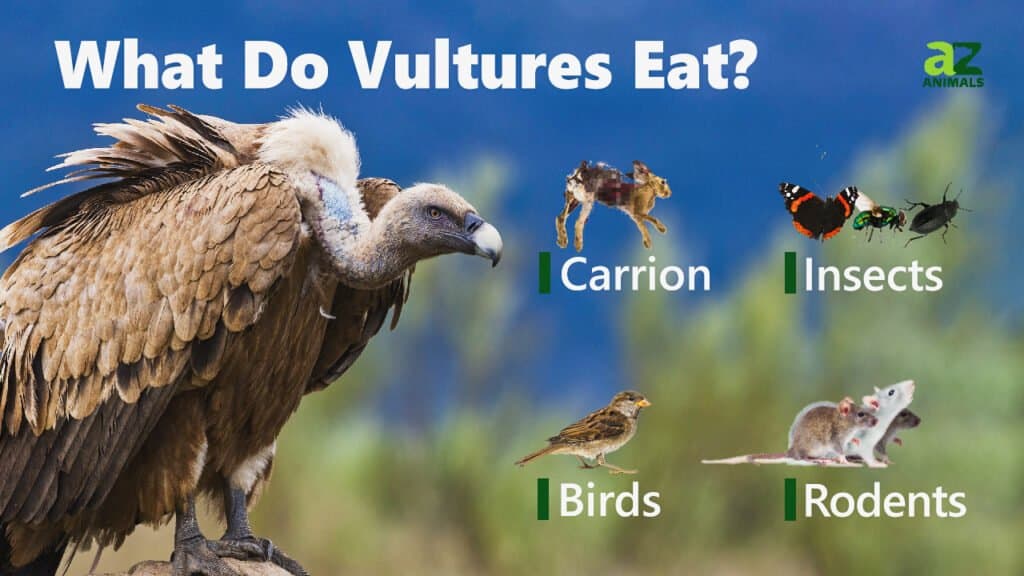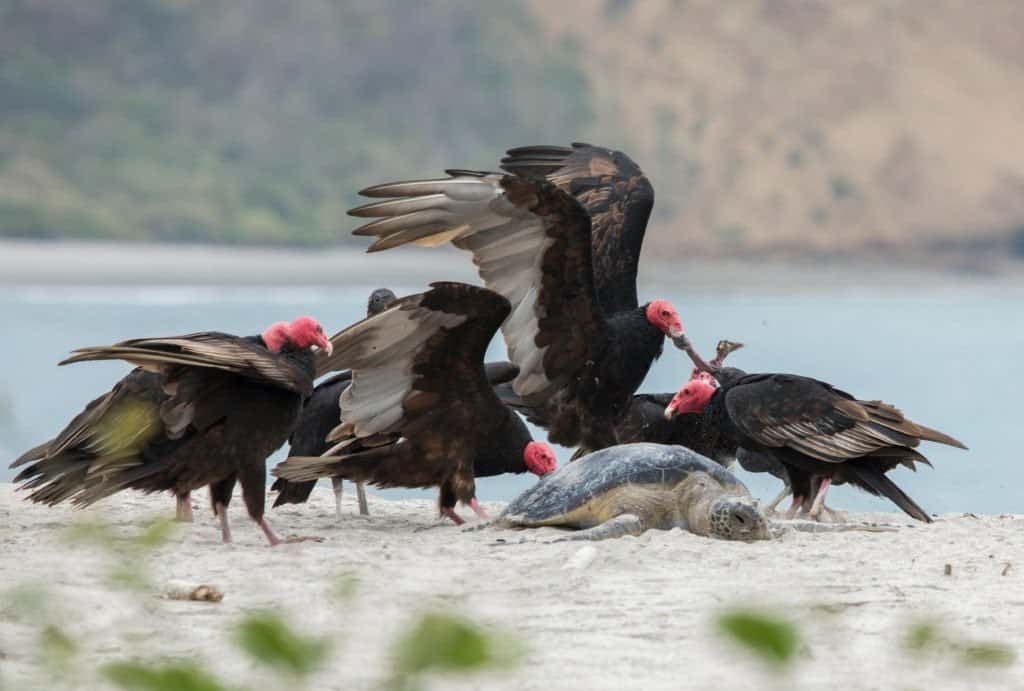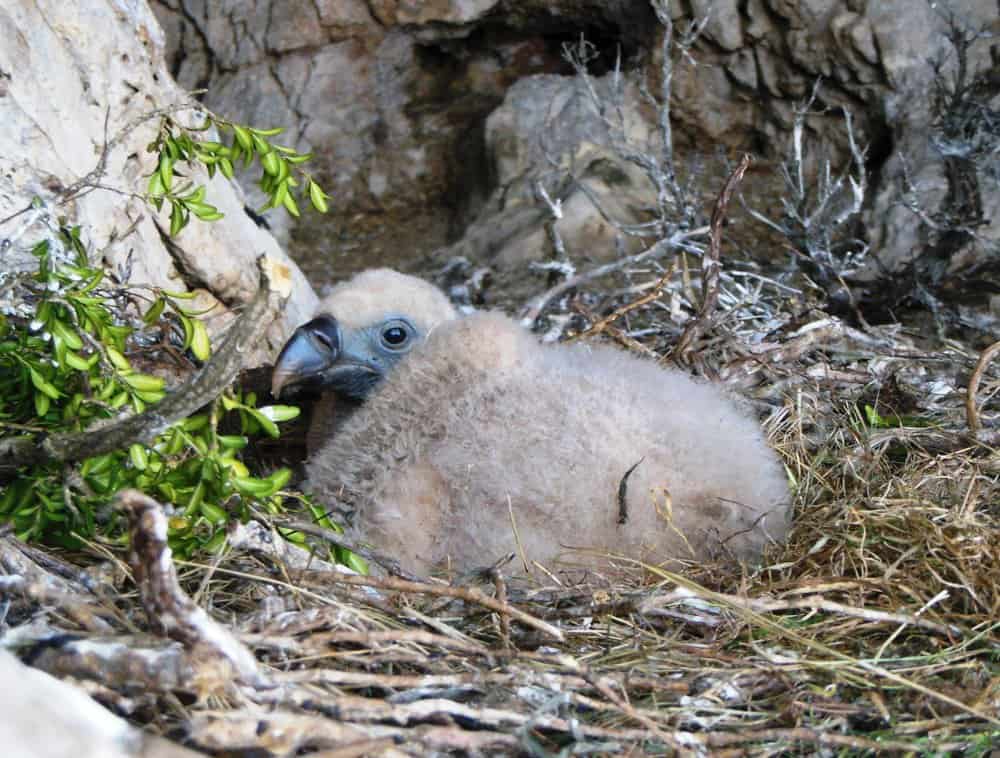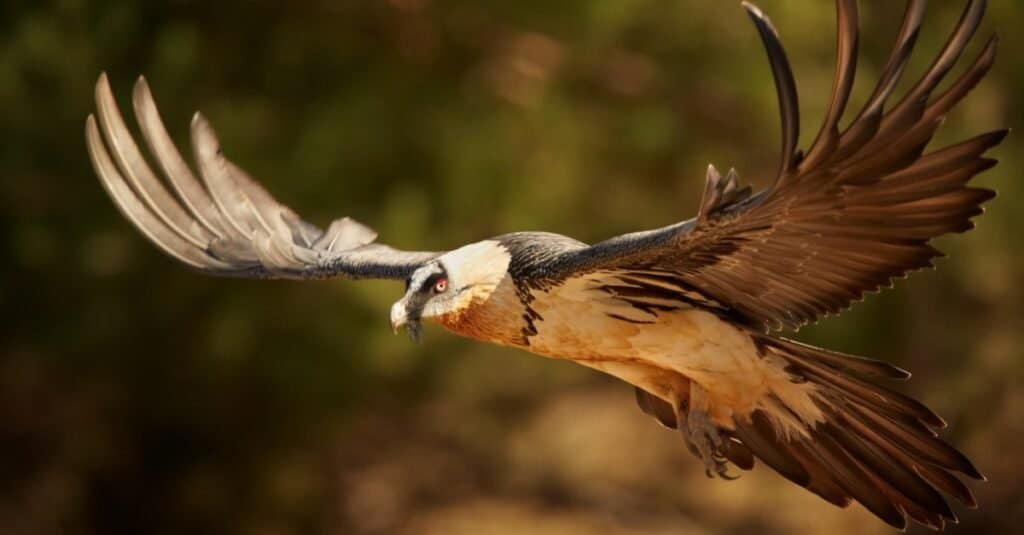Vultures are known as scavenger birds. They have even been called ‘nature’s garbage men’ as they are known for eating wild animals that are already dead. Vultures are found in every part of the world except Australia and Antarctica. They have huge wingspans with the largest vultures measuring nearly 11 feet from wingtip-to-wingtip.
Since they are known for eating dead animals, they have been used as a burial symbol in cultures around the world. Particularly in ancient Egyptian and Native American cultures. While their reputation has them labeled as cruel hunters, it’s not all completely true. They play an incredibly important part in the ecosystem and without them, the earth would be filled with disease.
We’ll take a look at what exactly vultures eat. We’ll also discover how these scavengers find their meals.
What Do Vultures Eat?

Vultures eat a diet of carrion, mammals, reptiles, and more. They are primarily carnivores and mostly feed on dead animals.
Here is a list of the most common foods that vultures will eat:
- Carrion
- Mammals
- Reptiles
- Birds
- Fish
- Amphibians
- Invertebrates
Vultures are opportunistic eaters, and it’s rare for them to kill an animal that’s alive. However, sick or dying animals are frequently preyed upon by vultures. Unlike many other animals, vultures are capable of breaking down rotten meat. These birds’ stomachs are extremely adaptive to rotting corpses filled with diseases and bacteria.
How Do Vultures Hunt?

Vultures are incredible at smelling when food is nearby.
©Ana Dracaena/Shutterstock.com
Vultures are often depicted as swarming and circling around dying animals, waiting for their moment to pounce. However, this depiction is far from the truth. Vultures were not equipped with the best physical attributes to make them pronounced hunters.
Instead, vultures are incredible fliers and use this ability when in search of food.
While they aren’t able to tell when an animal is on the verge of dying, they can smell an already dead one. That’s because vultures are equipped with an amazing sense of smell. This sense of smell allows them to detect when food is near. This is especially helpful when they can’t depend on sight alone.
Once they detect a carcass by either scent, sight, or the sound of other birds feasting, they rush over to it before other predators do.
Who Competes With Vultures For Food?
Once one bird finds food, others may be drawn over to the same carcass from long distances. Vultures follow a tight social order when eating that depends on body size and beak power. Smaller vultures must forage on crumbs left behind by bigger, more dominant species. Large vultures, on the other hand, will step aside to almost all large mammalian rivals, including jackals, hyenas, and coyotes.
What Do Baby Vultures Eat?

Vulture chicks need calcium and vitamin D to grow strong.
©JITD/Shutterstock.com
Baby vultures are called chicks. Unlike many other bird species, vultures were not gifted with strong legs and talons. They are also quite big, depending on the species. Turkey vultures average from 24 to 28 inches in length with a wingspan between 5 to 6 feet.
As such a large bird, vultures are not able to bring back carcasses to their chicks. Instead, the parent bird will eat the food while at the carcass and then take home bites for the chicks in their crop.
Since vultures are such heavy birds, they need to intake enough vitamin D and calcium to keep their bones strong. Eating bone chips keeps them flying.
When chicks are still small, the parent vulture will feed the chicks regurgitated food with bone chips in them. When the chicks are older, the parents will often separate larger bone pieces from their diet.
Are Vultures Dangerous To Humans?

Vultures are not particularly dangerous to humans.
©Martin Mecnarowski/Shutterstock.com
Although their appearance makes them look scary, vultures are virtually harmless to humans. They have no reason to harm people and also lack the ability to do so as their legs are weak and their talons blunt. However, it is important to keep in mind that they will enact certain measures to protect themselves.
As a protective measure, some vultures will spit projectile vomit. This is about as aggressive as their behavior gets and it is not life-threatening.
How Does Their Diet Impact Other Species
Vultures play an important role as nature’s garbage clean-up crew. As scavengers, they help keep the earth free of waste and other potentially harmful bacteria and diseases.
As they feast on the carcasses of deceased animals, they are able to pick out scraps and eat meat that may be too rotten for most other animals.
There are currently 23 different vulture species on the planet. However, as a consequence of human influence, more than half of them are classified as threatened, endangered, or critically endangered.
The photo featured at the top of this post is © yabaninizinde/Shutterstock.com
Thank you for reading! Have some feedback for us? Contact the AZ Animals editorial team.






